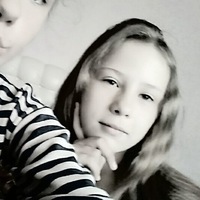
1. After they (have) a cup of tea, they (have) some cake.2. They (buy) the flat two years
ago.3. When I (watch) TV, the lights (go) out.4. He (tell) me that he (see) a lion.5. He (go) to France last year.6. After he (call) the police, he (call) the ambulance.7. She (wash) her hair when her baby (start) to cry.8. After he (work) hard, he (feel) ill.9. He (leave) the room after I (explain) all the facts.10. After he (find) the key, he (open) the door.11. While he (play) computer games, she (read).12. They (sell) everything before they (move) to Glasgow.13. He (visit) me yesterday evening.14. When I (clean) the room, Mary (come) home.15. After he (finish) school, he (start) to work in a factory. 0
0
 0
0
Ответы на вопрос
 Внимание! Ответы на вопросы дают живые люди. Они могут содержать ошибочную информацию, заблуждения, а также ответы могут быть сгенерированы нейросетями. Будьте внимательны. Если вы уверены, что ответ неверный, нажмите кнопку "Пожаловаться" под ответом.
Внимание! Ответы на вопросы дают живые люди. Они могут содержать ошибочную информацию, заблуждения, а также ответы могут быть сгенерированы нейросетями. Будьте внимательны. Если вы уверены, что ответ неверный, нажмите кнопку "Пожаловаться" под ответом.

Ответ:
1 having
2buying
3watshing
4tell
 0
0
 0
0

1. After they have a cup of tea, they have some cake. - This sentence describes a sequence of events. First, they have a cup of tea, and then they have some cake. - The use of "after" indicates that the second action occurs chronologically after the first action.
2. They bought the flat two years ago. - This sentence states that the action of buying the flat occurred in the past, specifically two years ago. - The verb "bought" is in the past tense, indicating a completed action.
3. When I watch TV, the lights go out. - This sentence describes a cause-and-effect relationship. Whenever the speaker watches TV, the lights go out. - The use of "when" indicates that the action of the lights going out is triggered by the action of watching TV.
4. He told me that he saw a lion. - This sentence reports a conversation where someone informed the speaker that they saw a lion. - The verb "told" is in the past tense, indicating a completed action. - The verb "saw" is also in the past tense, indicating that the person saw the lion in the past.
5. He went to France last year. - This sentence states that the person traveled to France in the past, specifically last year. - The verb "went" is in the past tense, indicating a completed action.
6. After he called the police, he called the ambulance. - This sentence describes a sequence of events. First, he called the police, and then he called the ambulance. - The use of "after" indicates that the second action occurs chronologically after the first action.
7. She was washing her hair when her baby started to cry. - This sentence describes two simultaneous actions. The woman was washing her hair, and at the same time, her baby started to cry. - The use of "when" indicates that the two actions happened at the same time.
8. After he worked hard, he felt ill. - This sentence describes a cause-and-effect relationship. After working hard, he felt ill. - The use of "after" indicates that the feeling of illness occurred chronologically after the action of working hard.
9. He left the room after I explained all the facts. - This sentence describes a sequence of events. First, the speaker explained all the facts, and then he left the room. - The use of "after" indicates that the second action occurs chronologically after the first action.
10. After he found the
 0
0
 0
0
Похожие вопросы

Топ вопросов за вчера в категории Английский язык
Последние заданные вопросы в категории Английский язык
-
Математика
-
Литература
-
Алгебра
-
Русский язык
-
Геометрия
-
Английский язык
-
Химия
-
Физика
-
Биология
-
Другие предметы
-
История
-
Обществознание
-
Окружающий мир
-
География
-
Українська мова
-
Информатика
-
Українська література
-
Қазақ тiлi
-
Экономика
-
Музыка
-
Право
-
Беларуская мова
-
Французский язык
-
Немецкий язык
-
МХК
-
ОБЖ
-
Психология
-
Физкультура и спорт
-
Астрономия
-
Кыргыз тили
-
Оʻzbek tili























